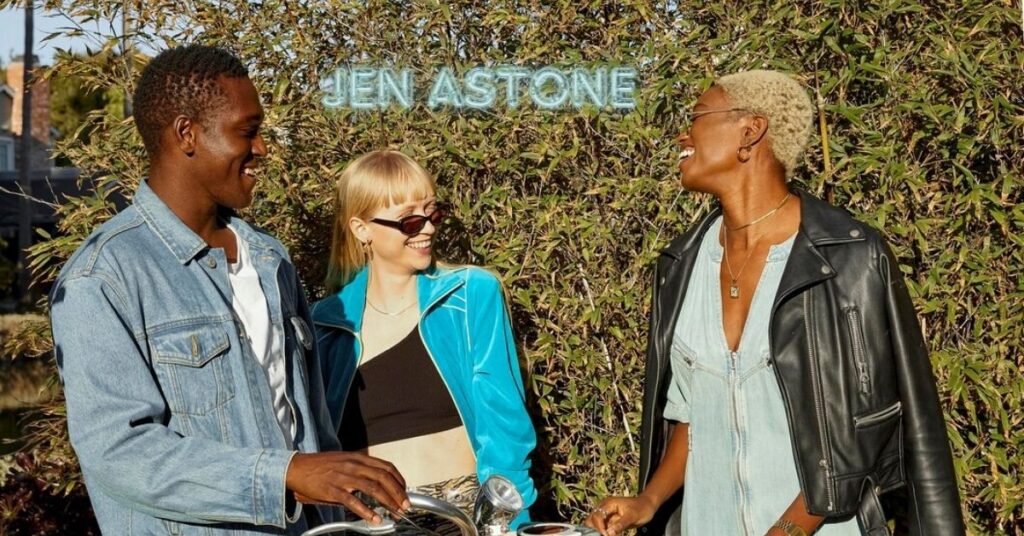Introduction to Jen Astone and the Swift Foundation
Meet the visionary force behind nurturing biocultural diversity: Jen Astone. With a passion for sustainability and cultural preservation, Jen’s work at the Swift Foundation is paving the way for a harmonious relationship between people and planet. Join us on a journey to explore how Jen Astone and Swift Foundation are making a difference in preserving our world’s rich tapestry of life.
The Importance of Biocultural Diversity
Biocultural diversity encompasses the interconnectedness between ecosystems and human cultures, highlighting the intrinsic value of traditional knowledge and practices in maintaining our planet’s health. It recognizes that biodiversity is not just about flora and fauna but also about the diverse ways in which different communities interact with their environment.
Preserving biocultural diversity is crucial for sustainable development as it promotes resilience to environmental challenges and fosters social cohesion within communities. By safeguarding indigenous languages, agricultural techniques, medicinal plants, and spiritual beliefs, we are protecting invaluable resources that have been passed down through generations.
Embracing biocultural diversity also opens doors to innovative solutions for pressing global issues such as climate change, food security, and loss of biodiversity. It encourages a more holistic approach to conservation efforts by integrating both ecological and cultural perspectives.
Valuing biocultural diversity means acknowledging the rich tapestry of life on Earth and recognizing the wisdom held by diverse cultures in nurturing a harmonious relationship with nature.
Nurturing Biocultural Diversity through Grants and Partnerships
Nurturing biocultural diversity through grants and partnerships is at the core of Jen Astone’s work with the Swift Foundation. By providing financial support to projects that preserve traditional knowledge and biodiversity, they are helping communities around the world thrive sustainably.
These grants empower indigenous groups to protect their lands, languages, and cultural practices while also preserving valuable ecosystems. Through strategic partnerships with local organizations and experts, Swift Foundation ensures that these initiatives have a lasting impact on both people and the environment.
Supporting grassroots efforts to maintain biocultural diversity not only safeguards our planet’s natural resources but also honors centuries-old traditions passed down through generations. It’s a collaborative approach that recognizes the interconnectedness of all living beings on Earth.
From promoting agroecology in Peru to conserving sacred forests in Kenya, each project supported by Swift Foundation contributes to building a more resilient and harmonious world where humans coexist in harmony with nature.
Success Stories from Swift Foundation’s Projects
Imagine a community in the Amazon rainforest reviving traditional farming practices, preserving heirloom seeds, and protecting endangered species. Thanks to Swift Foundation’s support, this vision became a reality. By empowering local indigenous groups with grants and resources, they were able to sustainably manage their lands while safeguarding biodiversity.
In another project, Swift Foundation collaborated with farmers in Africa to implement regenerative agriculture techniques. The result? Increased crop yields, improved soil health, and enhanced resilience to climate change. These success stories demonstrate the positive impact of nurturing biocultural diversity on both people and the planet.
Through innovative projects like these, Jen Astone and Swift Foundation are truly making a difference in promoting sustainable living practices worldwide.
The Future of Biocultural Diversity and Sustainable Living
As we look ahead to the future of biocultural diversity and sustainable living, it’s clear that these concepts are more crucial now than ever before. With environmental challenges on the rise, preserving biodiversity and cultural heritage is essential for our planet’s well-being.
Innovations in technology and sustainability practices offer promising opportunities to protect ecosystems while supporting local communities. By embracing traditional knowledge alongside modern advancements, we can create a harmonious balance between nature and human societies.
Collaboration among governments, organizations, and individuals will be key in shaping a sustainable future. Through collective efforts, we can implement policies that safeguard natural resources and promote cultural diversity worldwide.
Education plays a vital role in fostering awareness about the importance of biocultural diversity. By empowering people with knowledge, we can inspire positive change towards a more sustainable lifestyle for generations to come.
How Individuals Can Get Involved
Are you passionate about preserving biocultural diversity and supporting sustainable living practices? There are various ways individuals can get involved in the important work that Jen Astone and the Swift Foundation are doing. One way is to stay informed by following their social media channels, website, and signing up for newsletters. Engaging with their content helps spread awareness about the importance of biocultural diversity.
Another way to support their efforts is by volunteering your time or skills. Whether it’s assisting with event planning, conducting research, or helping with community outreach initiatives, there are opportunities for everyone to contribute. Additionally, consider making a donation to fund ongoing projects and initiatives aimed at nurturing biocultural diversity around the world.
You can also participate in local sustainability projects in your own community or start one of your own. By taking action at a grassroots level, you can make a tangible impact on promoting biodiversity and cultural heritage preservation. Together, we can all play a role in shaping a more sustainable future for generations to come.
Conclusion: The Impact of Jen Astone and Swift Foundation’s Work
Jen Astone and the Swift Foundation have made a significant impact in nurturing biocultural diversity through their grants and partnerships. Their dedication to supporting projects that promote sustainable living and preserve indigenous knowledge is truly commendable. By focusing on the interconnectedness of culture and ecology, they are not only safeguarding diverse ecosystems but also empowering communities around the world.
As we look towards the future, it is clear that the work of Jen Astone and the Swift Foundation will continue to play a pivotal role in promoting biocultural diversity. By investing in innovative projects and fostering collaborations, they are paving the way for a more harmonious relationship between humans and nature.
Individuals can also make a difference by supporting initiatives that prioritize biocultural diversity. Whether through volunteering, spreading awareness, or making conscious consumer choices, everyone has a part to play in preserving our planet’s rich tapestry of cultures and environments.
Jen Astone’s passion for biocultural diversity shines through in her work with the Swift Foundation. Through their combined efforts, they are not just protecting biodiversity; they are also honoring centuries-old traditions and wisdom passed down through generations. The impact of their work will be felt for years to come as we strive towards a more sustainable and inclusive future for all beings on Earth.
FAQs
What is the primary mission of the Swift Foundation?
The primary mission of the Swift Foundation is to provide grants and investment capital to support land and water stewards who protect and defend biocultural diversity and community-based resilience systems essential to a healthy planet.
Who does the Swift Foundation fund?
The Swift Foundation funds Indigenous and local communities as well as organizations involved in advocating for land and resource rights, indigenous knowledge systems, agroecology, and alternative economic models.
What organizations is the Swift Foundation a member of?
The Swift Foundation is a member of Divest Invest, the AgroEcology Fund, and the Global Alliance for the Future of Food.
What is Jen Astone’s academic background?
Jen Astone earned her Ph.D. in cultural anthropology with fieldwork focused on women’s gardens in Guinea, West Africa.
Where does Jen Astone live?
Jen Astone lives in Aptos, California with her partner and their 12-year-old son.







